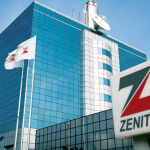Aliko Dangote, the president of Dangote Group, disclosed over the weekend that Dangote Petroleum Refinery has been receiving repeat orders for its products from customers who have been buying them ever since production began.
Thus far, the refinery has shipped its goods to Singapore, offshore Lome, and a few European nations.
Speaking while members of the House of Representatives were touring the Dangote Fertiliser Limited complex and the Dangote Petroleum Refinery & Petrochemicals, Dangote questioned why a regulatory body like the Nigerian Midstream and Downstream Petroleum Regulatory Authority (NMDPRA), which is supposed to safeguard local businesses, was criticising the latter and even fabricating stories in the media to support the need to keep bringing in dirty fuel.
He stated, “I urge you to even set up a committee that will take samples at filling stations and take our own sample because I must tell you that all the test certificates people are flaunting around are fake certificates.
“Where are the laboratories where those tests were conducted? By doing this, you will be able to tell Nigerians the very truth that they deserve to know. De-marketing of a company by a regulator that it is supposed to protect it, is very unfortunate.
“We didn’t know that you were going to ask us to stop by the road and take samples from other filling stations. I didn’t know what you wanted to do until we got here and you requested for a test.
“It is even good that it is your members that went directly to get our samples and I am sure you were shocked by the result. With the result, you can see that we produce the best diesel in Nigeria.”
Dangote publicly asked the NMDPRA, the regulatory body, to compare the refined goods coming from his refinery to those coming from imports, all the while arguing for an unbiased evaluation to see what was in the best interests of Nigerians.
“We produce the best diesel in Nigeria. It is disheartening that instead of safeguarding the market, the regulator is undermining it. Our doors are open for the regulator to conduct tests on our products anytime, transparency is paramount to us.
“It would be beneficial for the regulator to showcase its laboratory to the world so Nigerians can compare. Our interest is Nigeria first because if Nigeria doesn’t grow, we have limited capacity for growth.
“Speaker and esteemed members, you have witnessed the results of the credibility test. I appreciate your wise counsel in procuring samples from filling stations alongside our refinery’s product.
“Ours shows a sulphur content of 87.6 ppm, approximately 88, whereas the others exceeded 1,800 ppm. Although the NMDPRA permits local refiners to produce diesel with sulphur content up to 650 ppm until January 2025, as approved by ECOWAS, ours is significantly lower.
“Next week, we aim to achieve 10 ppm, aligning with the Euro V standard. Imported diesel is capped at 50 ppm, but as you have seen, those from the stations, imported by major marketers, fall well outside this standard,” Dangote observed.
He made the observation that suspicious certifications were frequently attached to regular imports of high-sulfur diesel.
He emphasized that buying the product straight from filling stations and doing credibility testing was the best way to ensure the quality.
Dangote stated: “Dubious certifications often accompany the importation of high-sulfur diesel into Nigeria, causing both health risks and financial losses for Nigerians.” He added that the problem has caused money losses as well as health dangers for Nigerians.
“The best method to verify this is to purchase the product directly from filling stations where end-users obtain it. I believe Farouk Ahmed (Chief Executive of NMDPRA) speaks without sufficient knowledge of our refinery.
“We have successfully exported diesel and jet fuel to Europe and Asia without any complaints; in fact, we have received repeated orders, indicating satisfaction with our products.”
Devakumar Edwin, Vice President of Gas and Oil at Dangote Industries Limited, backed up Dangote’s claim by pointing to recent initiatives taken by European nations like Belgium and the Netherlands.
“These countries have expressed concerns about the carcinogenic effects of high-sulphur diesel being dumped into the Nigerian market, prompting them to impose bans on such fuel exports to West Africa,” he said.
The Dangote Petroleum Refinery, built to process a wide range of crudes, including various African and Middle Eastern crudes as well as US Light Tight Oil, complies with Euro V criteria, Edwin told the visiting federal lawmakers.
He added that it was made to meet requirements set by the African Refiners and Distribution Association (ARDA), the Department of Petroleum Resources (DPR), the European Commission on Air Quality, the US Environmental Protection Agency (EPA), and other organizations.
Edwin stated that the $20 billion refinery can supply all of Nigeria’s needs for gasoline, diesel, kerosene, and aviation fuel, with excess fuel available for export, while also emphasizing that the facility’s output is of excellent quality and satisfies applicable international requirements.
In response to claims of monopoly made against the Dangote Group, the Vice President of the Group, Olakunle Alake, expressed dismay, pointing out that there are other companies in the business, such as the Nigerian National Petroleum Corporation Limited (NNPC Limited), which runs four refineries.
Speaker of the House of Representatives Tajudeen Abass expressed worry in his remarks about the controversy surrounding the quality of imported refined products into Nigeria and said that the Green chamber will form a committee to look into the matter in detail.
The Speaker added that as part of this program, samples products from different suppliers would be tested. He expressed appreciation for the Dangote Oil Refinery’s infrastructure, calling it a valuable asset in Nigeria’s efforts to become self-sufficient in petroleum products.
He added that the refinery has established itself as a major participant, particularly at a time when worries about energy security and sustainability on a worldwide scale were critical.
“Today’s visit to the magnificent facilities of Dangote Industries Oil Refinery section has been nothing short of enlightening. It has afforded us a rare opportunity to witness first-hand the monumental strides your organisation has made in transforming the landscape of petroleum production in Nigeria.
“The sheer scale and sophistication of this facility are awe-inspiring; it stands as a beacon of hope for our country as we navigate through the turbulent waters of energy supply challenges,” he said.
Abbas complimented the petroleum refinery’s cutting-edge technology, calling it innovative and a brilliant example of engineering and ingenuity.
He added: “Each corner of this facility resonates with the echoes of hard work, dedication, and an unyielding pursuit of quality. Every drop produced here carries not just oil but also the hopes and dreams of millions who yearn for a brighter future.
“We are deeply impressed by what we have seen during this visit which confirms the rating of this industry as the single largest oil refinery in Africa. This remarkable achievement does not merely reflect corporate success, it symbolises national pride, a tribute to what can be accompanied when visionary leadership meets relentless determination.’’
While acknowledging the many difficulties that were probably faced throughout the refinery’s development, the speaker praised Dangote for his unwavering dedication to reaching excellence.
“I would like to take this opportunity to acknowledge the myriad challenges that have beset this remarkable facility.
“The regulatory hurdles that often loom like dark clouds over progress, the complexities surrounding crude oil supplies that can stifle even the most ambitious endeavours, and the daunting economic landscape we navigate especially in these times when our economy grapples with foreign exchange constraints, are all formidable adversaries.
Yet, despite these tribulations, your unwavering commitment to excellence shines through,” he said.




